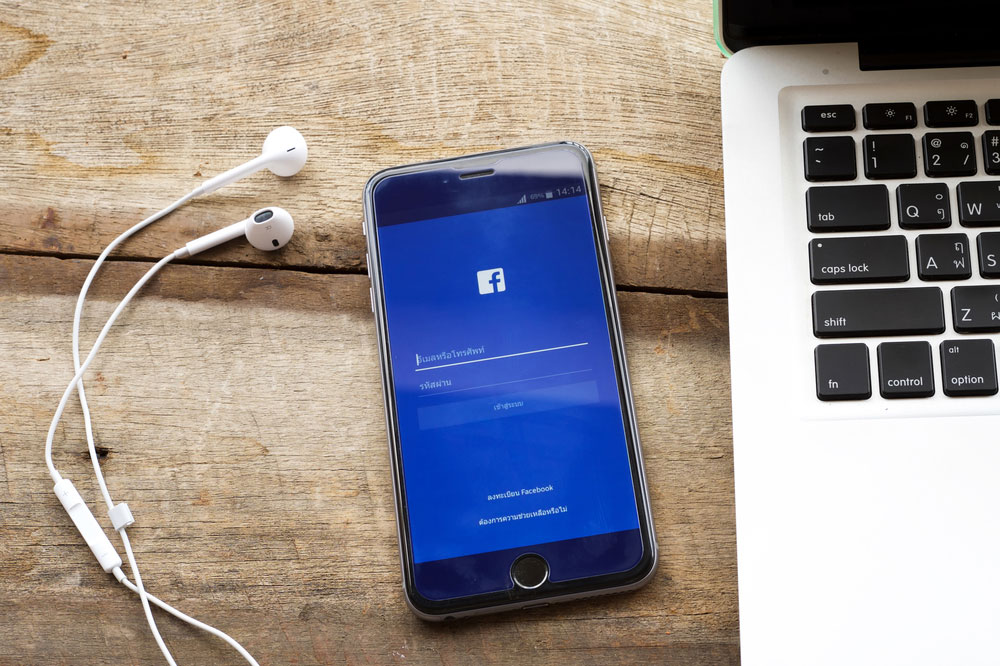Facebook Eavesdropping: How a Fake Story Became 'Real'
You know that story about how Facebook listens to your conversations? It's not true, and here's how the media failed in covering it.
[UPDATED 4:45 pm ET Monday with a clarification regarding Facebook Messenger.]
Last week, a story whirled around the internet: Facebook eavesdrops on your conversations to target you with ads, a professor had said, and Facebook had admitted it.

Except it wasn't true. The professor never said that, and Facebook never admitted it. Yet unscrupulous and careless media outlets amplified the groundless rumor so that it, to many people, became fact.
The upshot is: Don't believe everything you read and hear on the news regarding computer security and privacy. Many news organizations don't understand the technical details, and some others have no qualms about reporting falsehoods and distortions.
MORE: How to Use Facebook's Security Checkup
The whole Facebook-eavesdropping panic began May 24 with a local news report on WFLA-TV, an NBC affiliate in Tampa.
"The microphone setting on your phone really is selling out your secrets," a WFLA-TV anchor said while introducing the segment, which repeated a long-running rumor: that Facebook's smartphone app turns on your phone's microphone to listen to your conversation, looking for keywords it can use to show you ads.
Sign up to get the BEST of Tom's Guide direct to your inbox.
Get instant access to breaking news, the hottest reviews, great deals and helpful tips.
That rumor's been around since at least the spring of 2014, and Facebook has been denying it ever since.
"We don't record your conversations," Facebook said in more than one blog posting last week. "If you choose to turn on song identification, we'll only use your phone's microphone to try to identify the song you're listening to based on the music we're able to identify."
Back in 2014, we at Tom's Guide tried to see if the rumor was true. We loaded the Facebook apps on our smartphones and had conversations about random topics. We found no correlation between what we'd talked about and the ads that Facebook showed us.
Correlation is not causation
But the producers of the WFLA news piece did, or at least thought they had. They sent a camera crew to the office of Kelli Burns, an associate professor of mass communications at the University of South Florida.
Burns brought up her own Facebook page and was surprised to find a posting from a friend about an African safari and an ad for Volkswagen — two things that roughly matched something she'd said a few minutes earlier, while her smartphone had the Facebook app displayed, about her desire to ride a Jeep on safari.
The WFLA crew took this as proof that Facebook does listen to what you say. But Burns, who had already explained that Facebook does track your Web browsing habits, didn't believe the site was eavesdropping.
"I'm still not so sure this isn't just coincidence," she told the TV station. "I don't think Facebook is really listening to our conversations."
Burns' denial didn't make it onto TV. Instead, it was buried in the text story that the station wrote to accompany the video clip. What viewers saw and heard was exactly the opposite of what Burns had said.
"Watch what you say in front of this social site, because it's listening," the reporter said in a voiceover. "When your mike is on, it listens for buzzwords, then cleverly edits your Facebook feed."
Jumping the pond, and the shark
A week later, the British newspaper The Independent made things worse.
Under the misleading headline "Facebook is using smartphones to listen to what people say, professor suggests", the paper wrote on June 1 implied that Burns had affirmed that Facebook "appears to be using the audio it gathers not simply to help out users, but might be doing so to listen in to discussions and serve them with relevant advertising."
Burns told Tom's Guide that she and The Independent had exchanged emails, and that she had made clear to the newspaper that she didn't think Facebook was eavesdropping.
Nevertheless, The Independent story quickly went viral, reposted by websites that should have done a little research before repeating unsubstantiated allegations.
"Yes, Facebook is listening in on the conversations you have when your phone is nearby and the app is open," wrote BGR.
"According to Professor Kelli Burns, who teaches mass communication at the University of South Florida, Facebook may be listening more often than it lets on," wrote Digital Trends in a story reposted on Yahoo.
"Kelli Burns, a communications professor at the University of South Florida, told the paper [The Independent] that she believes Facebook listens to all conversations people have while the app is open," wrote Quartz.
Setting the record straight
On Friday, Burns spoke to the BBC to clear things up, resulting in perhaps the only honest piece of reporting in this entire mess.
"Although the angle of the [WFLA-TV] story was supportive of the idea that Facebook uses the microphone, I never made the claim that I believe that is happening, or that my one experiment with a reporter was in any way proof of that happening," she told the BBC. "I am not a scientist or a privacy expert — but I never said in that story that I believe Facebook can hear you."
In a blog posting today (June 6), Burns made clear that even the "demonstration" that aired on WFLA-TV wasn't what it seemed. Not only had Burns spoken about riding a Jeep on safari, but she had typed the same thing into Facebook Messenger — which Facebook makes very clear does get monitored for keywords.
[CORRECTION: Burns set our own record straight and told us she'd had an unrelated conversation on Facebook Messenger while speaking out loud about African safaris. She had earlier done a Google search for African safaris.]
Nor was it unusual that her friend's safari post, or the Volkswagen ad, appeared so quickly.
"That particular friend gets a lot of engagement from me as well as from her 2,000+ Facebook friends," Burns wrote. "Her posts are likely to become top stories on my feed. As far as Volkswagen goes, I drive a VW Passat and recently did a study about the company's crisis response to the emissions scandal."
Burns said she didn't know whether Facebook actually does listen to its users' conversations. (Doing so might violate federal and state laws.) She just had no evidence that it does.
"I feel that the news stories that state I made this claim have hurt my reputation," she wrote. "No researcher would make this declaration based on one demonstration. Such a conclusion could only be drawn after an empirical research study involving many more observations."
"Maybe there is something here that deserves further study and exploration," Burns added, "but I'm not personally issuing a warning about Facebook based on this weak anecdotal evidence."
If you're really concerned
To make sure Facebook doesn't really hear anything you're saying, you can try to make sure the smartphone app doesn't have access to the microphone. On an iPhone, go into Settings, select Privacy, then Microphone and toggle off Facebook's microphone access.
On an Android phone running Android 6 Marshmallow, go into Settings, then Apps, then Facebook and toggle off Microphone. But in earlier versions of Android, in which app permissions are all-or-nothing.
To make sure Facebook isn't listening to you on an Android device running Android 5 Lollipop or earlier, you'll have to uninstall the Facebook and Facebook Messenger apps. You'll still be able to access Facebook through the mobile Chrome browser, but you won't be able to use Messenger at all.
The next time you hear an internet rumor that sounds bogus, check Snopes.com, which regularly debunks them, including this one.
Paul Wagenseil is a senior editor at Tom's Guide focused on security and privacy. He has also been a dishwasher, fry cook, long-haul driver, code monkey and video editor. He's been rooting around in the information-security space for more than 15 years at FoxNews.com, SecurityNewsDaily, TechNewsDaily and Tom's Guide, has presented talks at the ShmooCon, DerbyCon and BSides Las Vegas hacker conferences, shown up in random TV news spots and even moderated a panel discussion at the CEDIA home-technology conference. You can follow his rants on Twitter at @snd_wagenseil.

